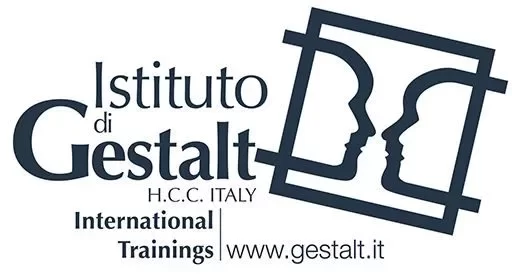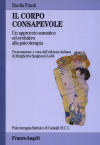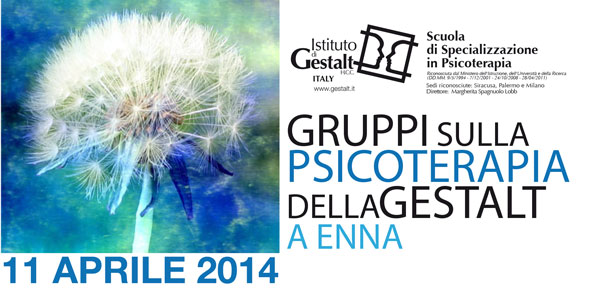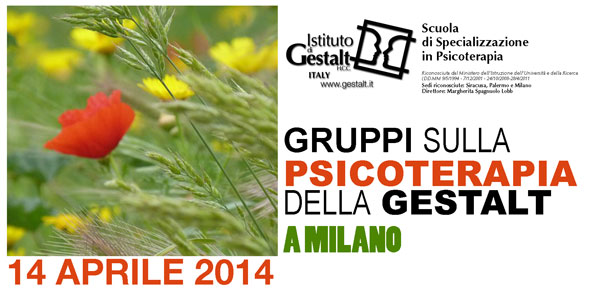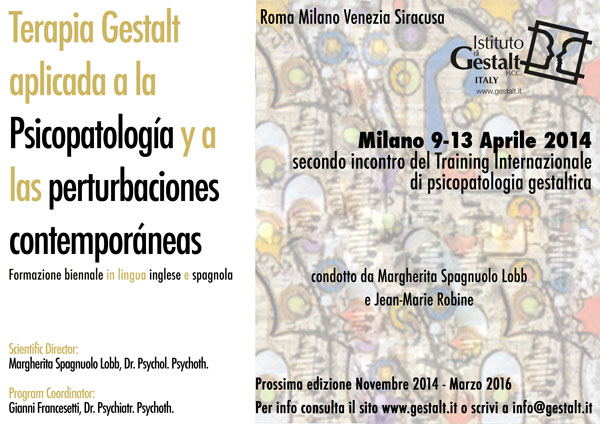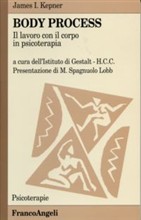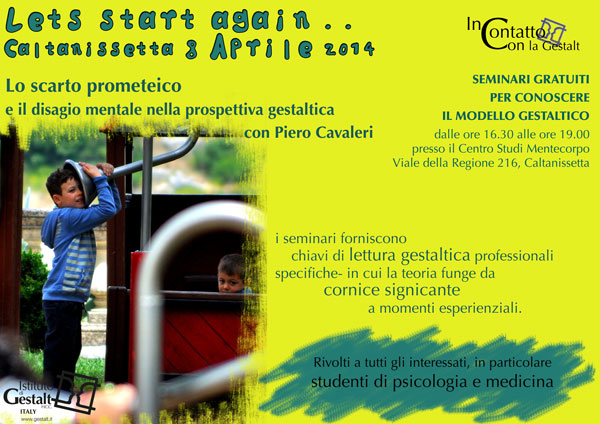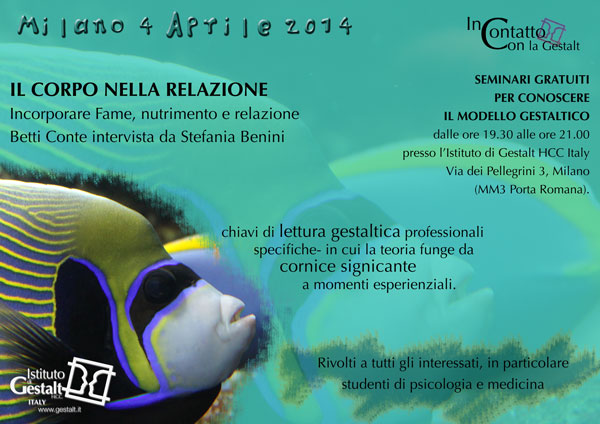Terapia Gestalt aplicada a la psicopatología y a las perturbaciones contemporáneas
Milano 9-13 Aprile 2014
 Psicoterapeuti della Gestalt di lingua spagnola, provenienti da Messico, Cile, Spagna, Norvegia, Italia si sono riuniti questa settimana, a Milano, per partecipare al secondo incontro di psicopatologia gestaltica organizzato dall’Istituto di Gestalt HCC Italy.
Psicoterapeuti della Gestalt di lingua spagnola, provenienti da Messico, Cile, Spagna, Norvegia, Italia si sono riuniti questa settimana, a Milano, per partecipare al secondo incontro di psicopatologia gestaltica organizzato dall’Istituto di Gestalt HCC Italy.

Il tema di questo secondo seminario, che oggi si avvia alla conclusione, è dedicato all’esperienza borderline e alle esperienze d’ansia somatizzata, ed è condotto dal direttore dell’Istituto, Margherita Spagnuolo Lobb e dal direttore dell’Istituto francese di Gestalt, Jean Marie Robine.

Riportiamo l’entusiasmo e il vissuto di gratitudine dei partecipanti per la possibilità, offerta dal nostro Istituto, di uno spazio e di un tempo in cui confrontarsi sulla diagnosi e sul trattamento delle nuove evidenze cliniche portate dai loro pazienti, e di mettersi in gioco, nei lavori personali con i didatti, sulle risonanze e i vissuti emozionali che i pazienti sempre evocano negli psicoterapeuti.


I corsi di psicopatologia gestaltica organizzati dall’Istituto e coordinati da Gianni Francesetti si svolgono in lingua inglese, spagnola, e italiana.

Per Iscrizioni/Inscripciones e informazioni/Información: info@gestalt.it
